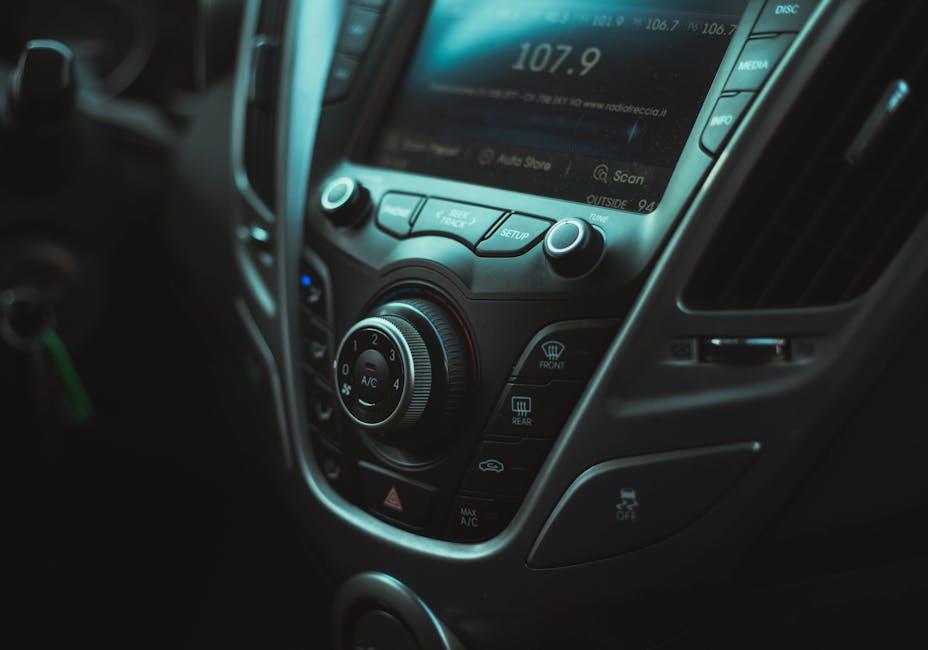Imagine cruising down a sun-soaked highway, the heat outside pressing relentlessly against your windows, while inside your car, the air conditioner hums—or worse, sputters—its way through what should be a refreshing escape. The comfort of a cool breeze from the dashboard is often taken for granted until it suddenly vanishes, leaving you sweltering and wondering what went wrong. Car AC failure is a common yet frustrating problem, particularly when the temperatures rise and relief feels essential. Understanding the top causes behind these breakdowns not only helps in troubleshooting but also in preventing an uncomfortable ride. Join us as we explore the most frequent culprits behind car air conditioning failures and what they mean for your driving comfort.
Table of Contents
- Common Refrigerant Leaks and How to Detect Them Early
- The Impact of Worn Out Compressor Clutches on Cooling Efficiency
- Clogged Condenser Coils and Their Role in AC Malfunctions
- Electrical System Faults That Can Disrupt Car AC Performance
- Importance of Regular Maintenance for Preventing AC Breakdown
- Choosing the Right Professional Help for AC Repair and Recharge
- Q&A
- Future Outlook
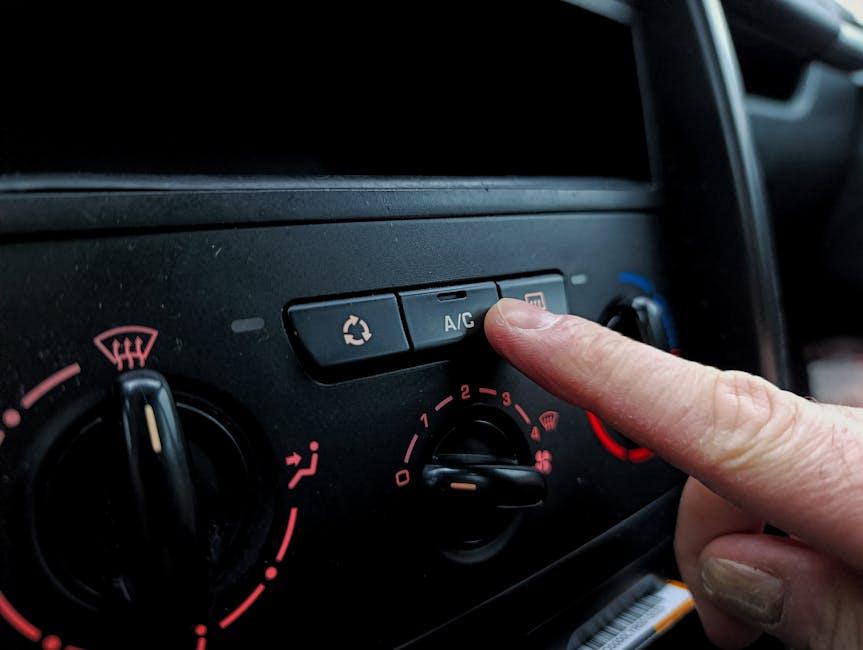
Common Refrigerant Leaks and How to Detect Them Early
Refrigerant leaks often begin unnoticed, silently sabotaging your car’s AC system. The most common culprits include cracks in hoses, loose fittings, or corrosion around the condenser and evaporator coils. Over time, the refrigerant level drops, resulting in diminished cooling performance. Early signs to watch for include a distinct oily residue around connections, or an unusual hissing sound indicating escaping gas. Catching these subtle symptoms can save you from costly repairs and uncomfortable drives during the summer heat.
To pinpoint leaks before they escalate, you might employ a few practical techniques at home or ask a technician for assistance. Look for:
- Visual Indicators: oily stains or dye visible under UV light.
- Performance Drop: sudden decrease in cooling or fluctuating cabin temperature.
- Odor: sweet, chemical smells within the vehicle.
Using a simple soap solution to check suspected spots can reveal tiny bubbles where refrigerant escapes. Below is a quick reference table summarizing common leak sites and typical detection tips:
| Leak Location | Detection Tip |
|---|---|
| Hoses & Connections | Look for oily residue and soap bubbles |
| Condenser Coils | Inspect for corrosion and hissing sounds |
| Evaporator Core | Check for damp carpet or sweet odor inside car |
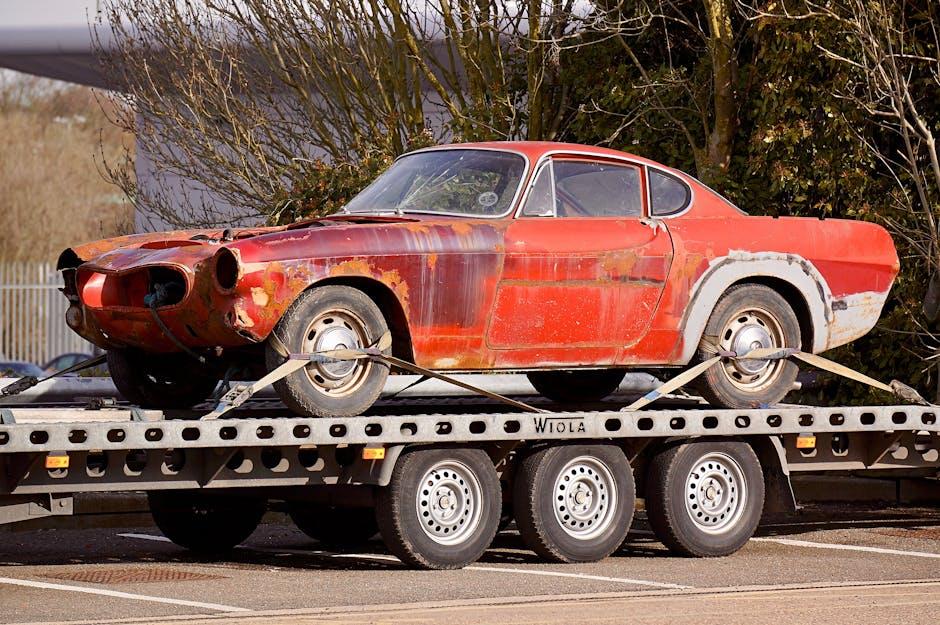
The Impact of Worn Out Compressor Clutches on Cooling Efficiency
When a compressor clutch starts to wear out, it can severely diminish the overall performance of your car’s air conditioning system. This component acts as the vital link between the engine’s power and the AC compressor, engaging and disengaging the cooling cycle as needed. A worn clutch may slip or fail to fully engage, causing intermittent cooling or complete failure to circulate refrigerant effectively. As a result, the cabin air may feel warmer than usual, and your system might struggle to maintain the desired temperature, especially on hotter days.
The degradation of the compressor clutch affects not only cooling efficiency but can also lead to increased wear on other AC components. Here’s what you might notice with a compromised clutch:
- Delayed or inconsistent cooling response after starting the car
- Unusual noises such as grinding or squealing when the AC is activated
- Higher engine load impacting fuel efficiency due to clutch slippage
| Symptoms | Impact on Cooling |
|---|---|
| Clutch Slippage | Reduced refrigerant flow |
| Delayed Engagement | Slower cooling startup |
| Complete Failure | No air conditioning output |
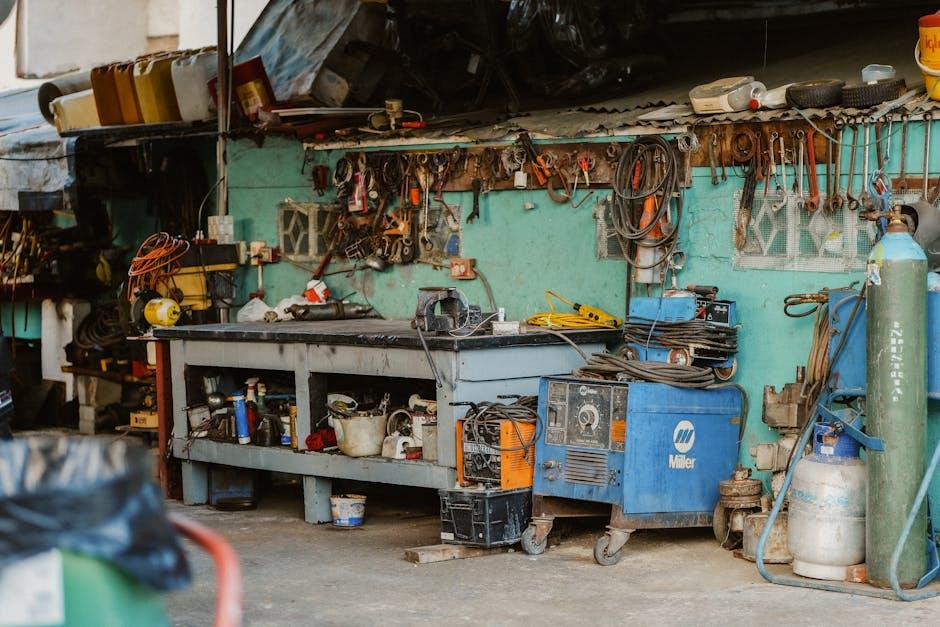
Clogged Condenser Coils and Their Role in AC Malfunctions
When dirt, leaves, and debris accumulate on the condenser coils, they create an insulating barrier that prevents the efficient transfer of heat. This blockage forces the AC system to work harder, causing the compressor to overheat and ultimately reducing cooling performance. Over time, the strain can lead to complete system failure. Regularly inspecting and cleaning the coils ensures the longevity and optimal functioning of your car’s air conditioning system.
Signs of clogged condenser coils include:
- Reduced cooling efficiency
- Unusual noises from the AC compressor
- Longer cooling cycles
- Increased engine temperature
| Cause | Effect on AC |
|---|---|
| Dirt buildup on coils | Reduced heat dissipation |
| Blocked airflow | Compressor strain |
| Overheating | System shutdown |
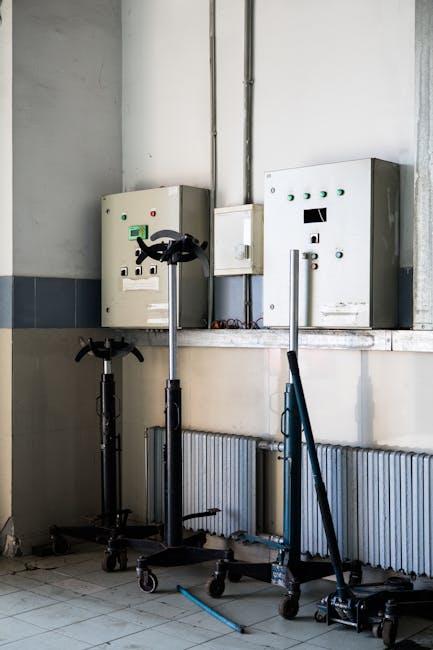
Electrical System Faults That Can Disrupt Car AC Performance
When the electrical system falters, your car’s AC can quickly lose its cool. Issues such as blown fuses or a malfunctioning relay can interrupt the power supply to the AC compressor, rendering it inactive. Additionally, wiring problems like corroded connectors or damaged cables can cause intermittent operation or complete failure of the air conditioning system. These faults often sneak in unnoticed until the AC suddenly stops blowing cold air, leaving drivers sweltering inside their vehicles.
Common electrical culprits include:
- Faulty AC compressor clutch relay
- Blown fuses in the AC circuit
- Damaged wiring harnesses
- Malfunctioning temperature sensors
- Weak or dead car battery affecting system voltage
| Electrical Component | Impact on AC |
|---|---|
| AC Relay | Stops compressor engagement |
| Fuses | Interrupts power supply |
| Wiring | Causes intermittent cooling |
| Temperature Sensors | Incorrect system signals |

Importance of Regular Maintenance for Preventing AC Breakdown
Keeping your car’s AC system in top shape goes beyond just comfort—it’s a smart move to avoid unexpected breakdowns and costly repairs. Routine check-ups allow mechanics to spot early signs of wear, such as refrigerant leaks or compressor issues, which can escalate if ignored. Regular maintenance also ensures that components like the condenser and evaporator are clean and functioning efficiently, which keeps cooling performance optimal and energy consumption low. Neglecting these essential steps can quickly lead to system failures right when you need your AC the most.
Regular maintenance benefits include:
- Improved air quality by preventing mold and bacteria buildup
- Increased lifespan of AC components
- Early detection of potential faults, reducing downtime
- Enhanced fuel efficiency due to optimized AC operation
| Maintenance Task | Frequency | Benefit |
|---|---|---|
| Refrigerant Check & Refill | Annually | Prevents leaks and ensures cooling efficiency |
| Filter Replacement | Every 12,000 miles | Maintains clean airflow and system hygiene |
| Belt & Hose Inspection | Every 6 months | Avoids unexpected mechanical failures |

Choosing the Right Professional Help for AC Repair and Recharge
Finding the right expert to handle your car’s AC repair and recharge is crucial for ensuring lasting performance and comfort. Look for certified technicians who specialize in automotive air conditioning systems and have a proven track record with your vehicle’s make and model. Professionals who use the latest diagnostic tools and adhere to environmental standards for refrigerant handling will save you from recurrent issues and costly repairs.
When evaluating potential service providers, consider these key factors:
- Experience: How many years have they been working with car AC systems?
- Warranty and Service Guarantees: Do they offer coverage on parts and labor?
- Customer Reviews: What do other vehicle owners say about their reliability and quality of work?
- Refrigerant Handling: Are they compliant with the latest environmental regulations?
| Service Provider | Certification | Warranty Period | Customer Rating |
|---|---|---|---|
| AutoCool Experts | EPA Certified | 12 months | 4.7/5 |
| FreshAir Garage | OEM Trained | 6 months | 4.5/5 |
| Comfort Drive Repairs | ASE Certified | 9 months | 4.6/5 |
Q&A
Q&A: Top Causes of Car AC Failure
Q1: Why does my car’s AC suddenly stop blowing cold air?
A1: The most common culprit is a refrigerant leak. Without enough refrigerant, your AC system can’t cool the air effectively. This could result from worn-out seals, cracked hoses, or punctured components.
Q2: Could a clogged or dirty cabin air filter impact my car’s AC performance?
A2: Absolutely. A clogged cabin air filter restricts airflow, making your AC feel weak or ineffective. Regular replacement of the filter keeps the air fresh and the system running smoothly.
Q3: How does the compressor affect the AC system?
A3: The compressor is the heart of the AC system, pumping refrigerant through the coils. If it fails due to electrical issues or mechanical wear, your AC won’t cool at all.
Q4: Can electrical problems cause car AC failure?
A4: Yes. Faulty wiring, blown fuses, or malfunctioning sensors can disrupt the AC’s operation. Electrical issues often lead to intermittent cooling or total AC shutdown.
Q5: What role does the condenser play, and can it cause AC failure?
A5: The condenser dissipates heat from the refrigerant. If it’s clogged with debris or damaged, the system can overheat and fail to cool properly.
Q6: How important is regular AC maintenance?
A6: Critical. Regular checks for leaks, refrigerant levels, and component wear can prevent most causes of AC failure and extend the system’s lifespan.
Q7: Can driving habits influence the longevity of my car’s AC?
A7: Yes. Using your AC regularly—even in cooler months—helps keep the compressor lubricated and seals hydrated, preventing premature failure.
Q8: Is it worth repairing a failing AC system, or should I replace it?
A8: It depends on the issue and your vehicle’s value. Small fixes like refilling refrigerant or replacing a filter are cost-effective. But major compressor or condenser replacements might warrant considering new system installation or vehicle evaluation.
Q9: How can I identify early signs of AC failure?
A9: Watch for weak airflow, strange noises, foul smells, or warm air blowing when you expect cool. Prompt attention to these signs can save you money and discomfort down the road.
Q10: What does it mean if my AC blows cold air, but the windshield fogs up?
A10: This often indicates low refrigerant or moisture issues inside the system. It’s a sign your AC isn’t dehumidifying properly, a common symptom before full failure.
Future Outlook
In the end, understanding the common culprits behind car AC failure can save you from unexpected discomfort and costly repairs. Whether it’s a simple refrigerant leak or a worn-out compressor, knowing what to look out for helps keep your ride cool and refreshing. So next time the summer heat hits, you’ll be equipped not just to survive, but to cruise in comfort—one chilled breeze at a time.

